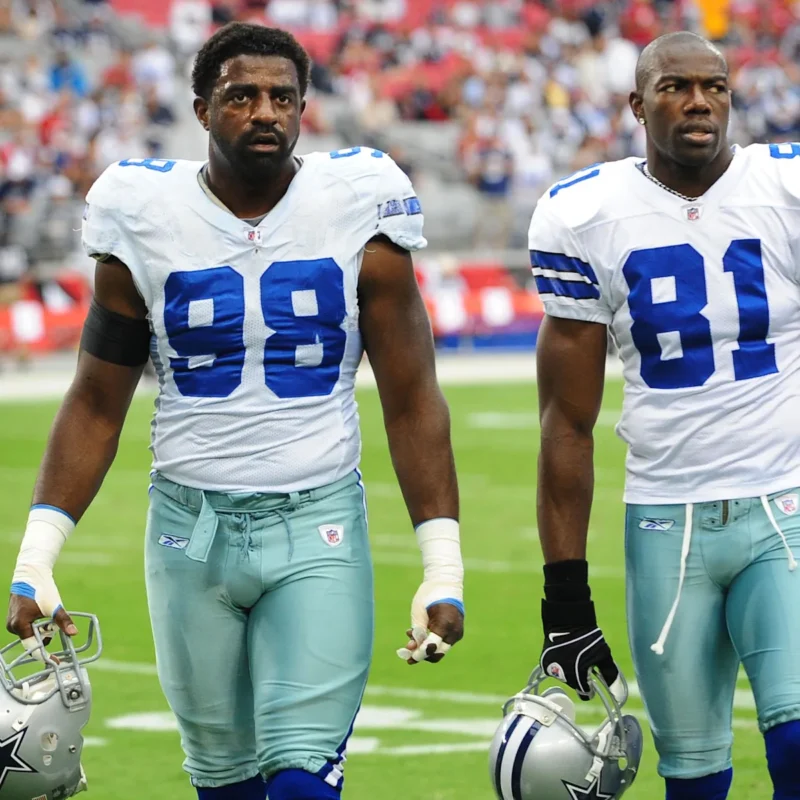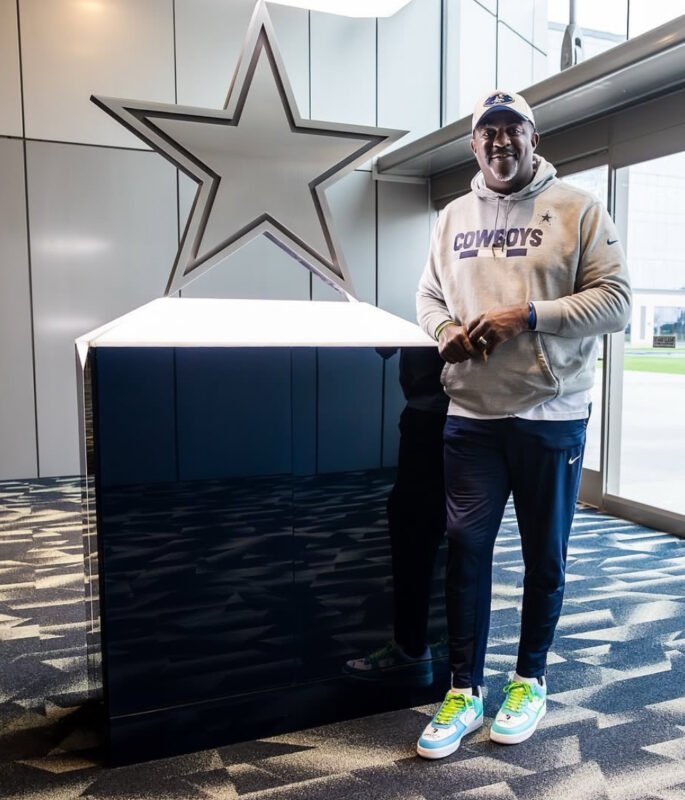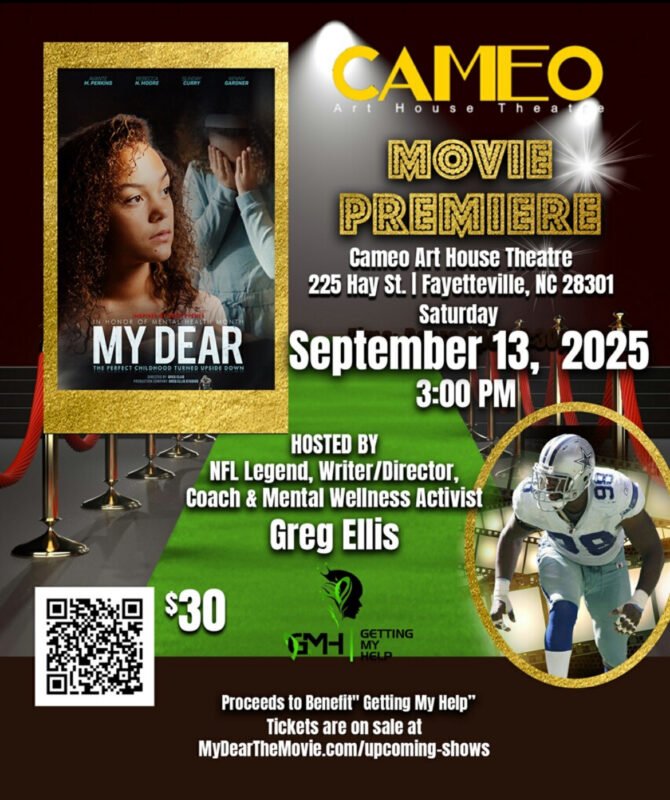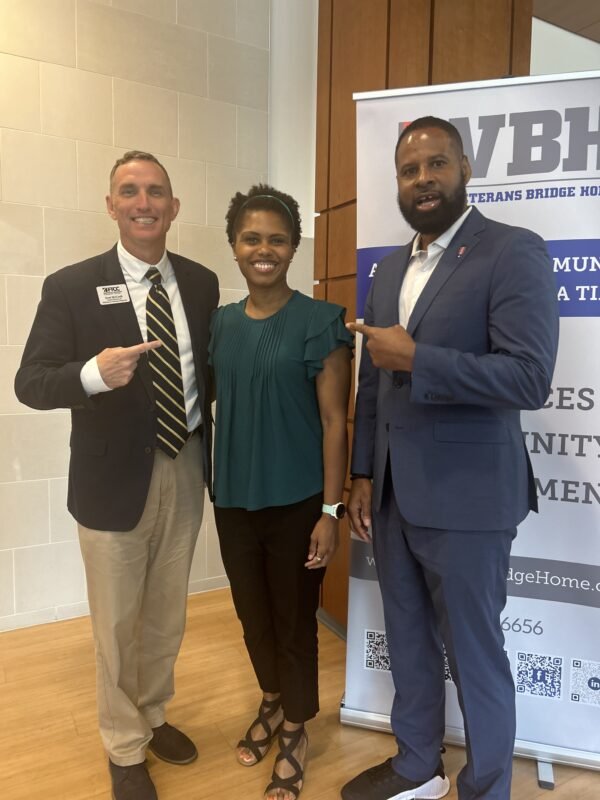The Community Blueprint Meeting, held Wednesday, September 10th at Fayetteville Technical Community College, brought together speakers, advocates, and community leaders to address the urgent challenges of mental health and suicide prevention in honor of Suicide Prevention Month. Among the compelling voices was former Dallas Cowboys standout Greg Ellis, who shared deeply personal experiences that have fueled his commitment to raising awareness around mental health.
“People ask me, ‘Greg, why are you so passionate about mental health?’” Ellis told the audience.
He reflected on the 2012 suicide of former NFL star Junior Seau, saying it became a turning point in his advocacy.
“When Junior [Seau] ended his life, it really touched me like never before. I felt compelled to act and raise awareness. I started reflecting and doing self-evaluations, and I became deeply invested in it. There are so many people out there whose hurting,” the Wendell, NC native shared.
Ellis also shared his brother’s struggles with schizophrenia, explaining that his diagnosis and eventual institutionalization brought the issue even closer to home. He recalled how his brother was released from a mental institution on his birthday, when he was a student at UNC Chapel Hill at the time, an experience that left a lasting mark on how mental health effect loved ones.


L-R: Greg Ellis, a former star of the Dallas Cowboys, alongside Terrell Owens on the football field at the University of Phoenix Stadium during a game against the Arizona Cardinals; Photo Credit: Mark J. Rebilas/USA TODAY Sports; and Writer and Film Director of ‘My Dear’ the Movie, Greg Ellis; Courtesy of @thegregellis98/Instagram
“My prayer was, ‘God, please make him get out on his birthday, so we can celebrate together,'” Ellis shared.
Channeling his passion for mental health into creative work, Ellis produced My Dear, a film that explores the complexities of mental health struggles and the importance of seeking help. Told through the eyes of a six-year-old daughter, the story highlights the silent burden carried by children in households affected by mental illness. Ellis emphasized that the project is designed to spark dialogue, reduce stigma, and inspire individuals to prioritize their well-being.

The former NFL Pro-Bowler further connected mental health to unmet basic needs, drawing on Maslow’s Hierarchy of Needs. From safety and physiological requirements to love, belonging, and self-actualization, Ellis argued that when foundational needs go unmet, it often leaves individuals vulnerable – turning to unhealthy coping mechanisms. He noted that individuals may attempt to satisfy higher-level needs in destructive ways, which can lead to worsening emotional and psychological instability over time.
“If someone can’t meet their basic needs, they might spiral into destructive choices—like unhealthy relationships, drinking, or eating disorders,” Ellis explained.
“Those behaviors might provide temporary relief, but they only add to the problem, creating a cycle that makes recovery even harder.”
Ellis urged attendees to explore the Getting the Help app for resources and invited the community to attend the premiere of My Dear. He also visited Fayetteville State University to promote the film and continue raising awareness.
Other speakers included Christopher Mitchell, court coordinator at the Cumberland County Veterans Treatment Court, who described how the court supports justice-involved veterans on their path to healing. Carolina Counseling Services staff members Jaime Fitzpatrick and Ebone Rocker also spoke on the mental health needs of the community and the critical importance of expanding access to care.

By bringing together leaders like Ellis, Mitchell, Fitzpatrick, and Rocker, the Community Blueprint meeting underscored a growing regional commitment to breaking stigma, expanding services, and building stronger support systems for both veterans and the wider community.
Community Blueprint Greater Fayetteville and Fort Bragg area is a coalition of organizations that supports service members, veterans, and their families. The group focuses on behavioral health, family strength, reintegration, employment, volunteerism, financial and legal issues, education, and housing. Members meet monthly to share resources and strengthen the local support network.


